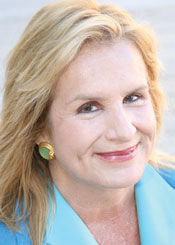Yes, I did raise one son — out of three — who is a financial consultant, but a genetic disposition toward financial literacy may not be a direct line from me. I have challenges in the numerical arena.
Still, when it comes to a night out with friends, I am all about dividing evenly. Get the bill. Add the tip. Divide by the number of bodies with forks.
Common sense dictates that everyone is responsible for their fair share. You don’t need a hashtag or Tik Tok dance meme to remind you that the cost of a dinner, outing or group gift is only equitable when evenly distributed.
It’s always better that way, so that the moment the check arrives at a table of friends and acquaintances it does not devolve into a dramatic reenactment of the last hours on the deck of the Titanic.
I admit that in college I had a t-shirt I wore with irony that read, "I can’t be overdrawn, I still have checks left," in the bygone era of when people still wrote checks from checkbooks. Remember the addition and subtraction mistakes we did by hand and recorded dutifully?
Life may not have been simpler, and it involved more math and a lag time. Now that we can pay by swiping or inserting a card or waving a phone, payments are instant and withdrawals simultaneous.
Still, we can elect to divide evenly by app — that is, put in the total and the number of people present and divide. I wonder why it seems never to be that simple?
"I didn’t have the soup." "You had a more expensive entrée. I had the salad." Invariably one or maybe two or three persons in the party will object to even distribution of cost because they had one less appetizer. One more glass of wine. Did not take a bite of the shared dessert. Everyone, it seems, has an edible grievance.
But really, it turns out to be pennies, or maybe a few dollars, more or less that you owe than if you did a hand-calculated, item-by-item inventory of the check.
But isn’t our time worth more than that? And our sanity? Not to mention the cost of friendship.
Years ago I shared a tab with a friend and her two friends. One woman remarked, "You had way more than I did," pointing first to me then to the empty platter of hummus and veggies. She placed a $5 bill on the table and closed her purse.
I also recall a dinner with many couples that was joyful and hilarious and filled with great food and witty conversation — until someone’s new husband ordered a second entrée. Just because. We split the tab evenly. I was sort of mad, but didn’t bring up that I ordered the chicken, and not even the pricey one. But we all just let it go and remembered to insist on separate checks next time.
This isn’t always just about food and good times. Going "in" on something — and when it gets to be more than 10 people, oh goodness, take a deep breath — does not have to result in a conflagration, a shredding of friendships, or a discussion about petty participation. Just own up and pay what you are asked to pay. Promptly.
I still shudder though when it’s a work situation and someone goes around collecting for a group gift, usually for someone you don’t know well or like all that much. You know darn well people are not putting the same amounts in the manila envelope. They just aren’t.
Inequity abounds in most all aspects of life. There are gaps in most everything we do, attributable to gender, race, age, ability, doctrine, ideology, economics and, yes, even zip codes. And chances are you can’t evenly divide the responsibilities of your life with others, whether we are talking about duties at home or at work or anywhere in between. The odds are sometimes you contribute too much and sometimes too little. Why not make it simple when you can?
There is an emotional tax on arguing about who owes what, when, why and how. It’s just simpler to take the high, egalitarian road and divide responsibly, fairly. You end up saving by not risking a breach to your emotional wellness.
I know. I did the math.


